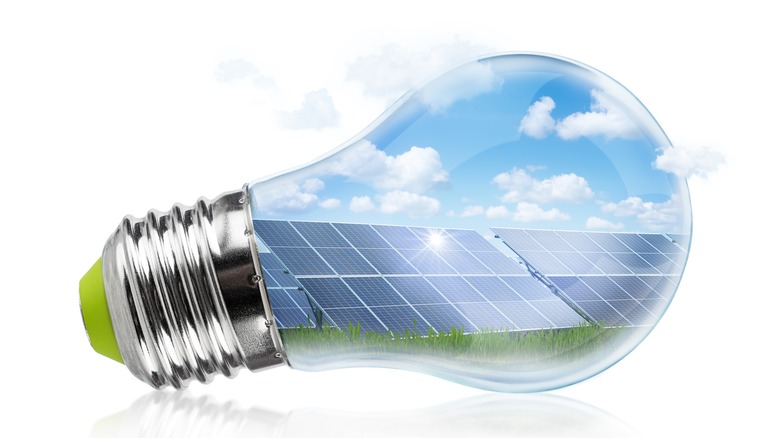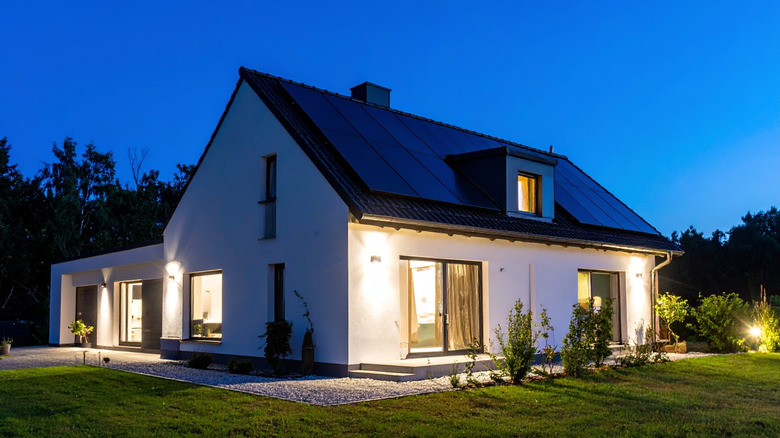Can A Light Bulb Power A Solar Panel?
You may be thinking about installing solar panels on the roof of your home before the residential solar investment tax credit expires at the end of 2025. Significant home-improvement projects can be costly and daunting, and there's a lot to consider before committing to solar panels. Installation costs will depend on where you live, how much electricity you use, and how large your house is, but on average, it costs around $30,000. The rewards are lower monthly energy bills and, after you pay off the initial investment, cheap or free renewable energy.
The science behind solar panels is relatively simple. When the sun hits a solar panel, it creates an electrical charge that is then inverted from direct current, or DC, into alternating current, or AC. Our electrical grid and our homes all use AC. Excess energy is stored or moved into the local power grid. After the sun goes down, your solar panels take a break — or do they? Could you conceivably power a solar panel using light bulbs? Technically, yes. But most experts agree, it's not worth the time or effort required.
Can you really power a solar panel with a light bulb?
Solar panels don't work at night for obvious reasons, but the idea of powering your panels with a light bulb is like something out of a movie. While possible, it's not at all practical. Artificial light is very different from sunlight, which has a broader spectrum with more wavelengths. Sunlight includes UV, visible, near-infrared, and infrared light, running the spectrum from 400nm to 1200nm, while artificial light only provides light in the 300nm to 800nm wavelength.
Solar panels will work with artificial light, but at a reduced capacity. It's much more inefficient than sunlight, takes longer, and produces less power. You must also place the light source close to the solar panels, which is impractical when the panels are on your roof. LED lights will work, though not in real-life scenarios, while incandescent, halogen, and fluorescent lights will not generate enough electricity.
Luckily, you can make your solar panels work for you even when the sun is down. Many systems store the excess energy produced during the day in batteries. After dark, you can use those batteries for power. It may not be enough to take you completely off the electrical grid, but it will help. You can also take advantage of something known as net metering. If you produce more electricity than you need during the day, you can sell it to your utility provider, helping to offset the cost of pulling power off the grid at night.

